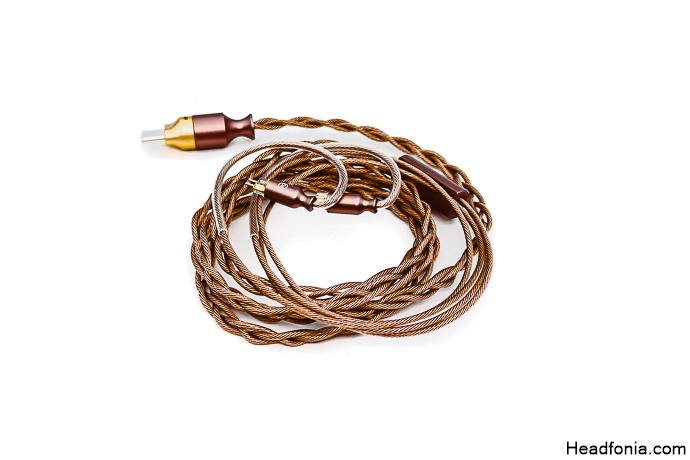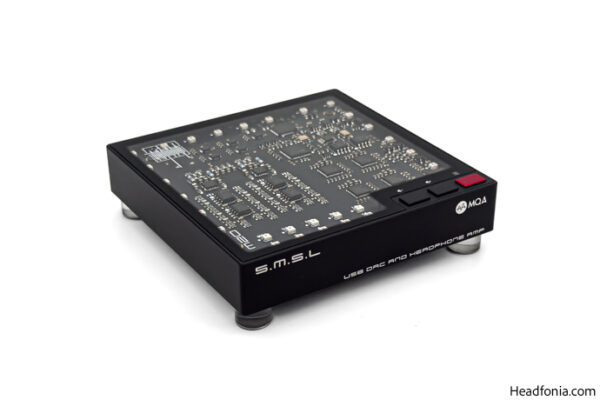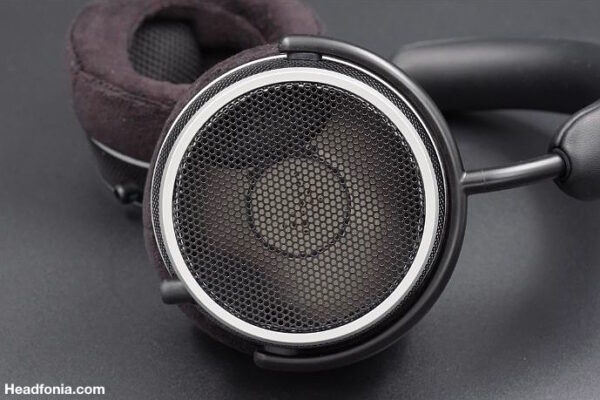Today, we are looking at the ddHiFi M130B upgrade cable with DAC. It retails for $109.99 USD.
Disclaimer: DDHiFi sent us the M130B Coffee Cable for this review. As always, this article reflects my unbiased opinion.
ddHifi
Founded in July 2017, Guangzhou DD Electronics Technology Co, Ltd is the company behind the ddHiFi brand. Under the leadership of CEO Demond Ding, a former member of FiiO and OPPO, the company has made a name for itself in the audio industry with its unique design language and wide range of high-quality products. ddHiFi has become increasingly popular among audio enthusiasts and specializes in headphone adapters, DAC-AMP dongles, interconnect cables, earphones, and accessories.
The brand’s design philosophy is based on simplicity and functionality, focusing on user-friendly products and elegant yet modest designs. Their focus is on creating durable and practical products that match their vision of quality, design and performance.
Today, we are reviewing their M130B upgrade cable with integrated ES9603Q DAC. The output power is 45mW@32ohms, which is plenty for most IEMs. The cable uses OCC & OFC wires.
You can check their online shop and official Aliexpress store for prices and other Hi-Fi accessories.
DDHiFi M130B – Upgrade Cable with USB-C DAC/AMP
The M130B, aka Coffee Cable, is one of the latest products from ddHiFi. It is available in 0.78mm and MMCX connectors, and it features a USB-C termination. Inside its USB-C connector housing, it features an ESS Sabre ES9603Q DAC chip. The cable provides an output power of 45mW@32ohms, which is enough for most IEMs. Its cable consists of OCC and OFC wires, with its main core being high-purity OCC, which was used in the upgrade cable Nyx. It also looks like it uses the shielding layer that was used in the higher-tier BC130B, which is nice. The M130B comes with a MEMs mic and in-line controls, which adds convenience, especially for mobile use with smartphones. It is selling for $109.99 USD. Let’s get to it without further ado.
Specs & Highlights
- DAC/Amplifier Chip: ES9603Q
- MMCX (Sennheiser IE-Compatible) or 2-Pin 0.78mm
- Output Power: L+R 245mV+45mW (32Ω/THD+N<1%)
- SNR: ≥112dB (32Ω load/A-weighted)
- Dynamic Range: >120dB
- THD+N: <0.008% (32Ω load)
- Noise Floor: <3uV (A-weighted)
- Crosstalk: <-60dB (32Ω load)
- PCM Decoding Capability: Up to 32-bit/384kHz
- Conductor: 25.6AWG OCC (core) + 23.6AWG OFC (shielding)
- Cable Structure: 0.06mm x 49 strands x 2 strands (core)
- In-Line Controls: Supports CTIA standard
- Length: ≈ 120cm
- Weight: ≈ 26g
- USB-C

Packaging
The M130B comes in a compact box with an outline of the product on the front and technical specifications on the back. There’s a scratchable QR code to verify the product’s authenticity. Inside, you’ll find the cable itself, along with a warranty card and a quality control certificate stamped with the inspection date.

Design & Build Quality
I have to say, DDHiFi reminds me a lot of Apple in terms of design and build quality. I’ve used a couple of their products and they always feel top notch, no cheap plastics anywhere. They stick to premium materials like aluminum, leather, kevlar, etc. The M130B is no exception. It features their signature aluminum housing for the USB-C connector, a block-style aluminum case for the Y-splitter, and matching 0.78mm 2-pin connectors in both color and shape.

Visually, the coffee brown color and anodized finish really set it apart from the sea of chrome cables I have in hand. I find the chromes repetitive and a bit boring, so the M130B is a refreshing change for me. The braiding is nicely done, and the cable jacket is about a 7 out of 10 in terms of pliability. It’s not too stiff, not too elastic, either. The pre-shaped ear hooks feel great against your skin, and thanks to the single-strand style, they’re super comfortable to wear. Also, the microphone hole is cleverly hidden; there’s just a tactile, unobtrusive button on the Y-splitter. By cleverly hidden, I mean I really can’t find the hole. Overall, the M130B Coffe Cable looks and feels lovely. These guys should design DAPs.

Features
Compatibility-wise, the cable works with all the devices I have on hand: Google’s Android 14, Xiaomi’s HyperOS, iPhone 16 Pro Max running iOS 18.1, and even DAPs like the DX260. If your source supports USB DACs, you’re good to go.
Now, let’s talk power. I’m using the Bellos Audio X4 semi-custom IEMs for this review. It has an impedance of 16Ω at 1kHz and a sensitivity of 116 dB/mW. The Coffee Cable offers 45mW into 32Ω load, and for me, around 65% volume is just right for comfortable listening.
One of its impressive features is the in-line controls embedded inside the Y-splitter, along with a high-performance MEMS microphone circuit. The call quality isn’t quite as good as my iPhone’s built-in mic, but it’s definitely better than some TWS earphones we’ve tried. What’s cool is that you don’t have to bring the Y-splitter up to your mouth; it captures your voice just fine hanging down. It also does a decent job of handling background noise.

I was curious about the mic since I couldn’t find the microphone hole, so I called some friends to test it out; they said my voice came through pretty well. I asked them to rate the call quality compared to my iPhone 16PMX’s usual mic. Four of them gave it a 7 out of 10, and one gave it an 8. Personally, I’d give it a solid 7/10.
Another interesting detail is its double-shielded design, which separates power and data transmission to minimize interference. They’ve separated the microphone cables from the audio circuit. Microphone interference can be a real issue with cables that include a mic, as sometimes the artifacts or noise can bleed into the audio that is being transmitted to the receiving party. I didn’t experience any of that with the Coffee Cable.
The tactile button on the Y-splitter is also handy. It works as a play/pause button, and on iOS, holding it down activates Siri. It works with Android the same way.

Sound Quality
Now, onto the sound. The M130B delivers a clean and fairly neutral sound signature. I tested it with my Bellos Audio X4 IEMs, and the combo sounds higher in resolution than the famous Apple dongle DAC + X4’s stock cable combo. Detail retrieval feels better, and the overall tonal balance is improved compared to the stock setup.
I did some testing with different apps. Using the USB Audio Player PRO (UAPP) app on Android with local files, the sound was noticeably sharper and more sibilant, almost to the point of being too much. Switching to the Qobuz app gave me the same good quality as the iPhone’s Music app, both of which can stream lossless up to 24-bit/192kHz. There were no significant volume differences between UAPP and iOS apps, which is great because some portable DAC/AMP dongles can be inconsistent in that regard.

Last Words
All in all, I really like the DDHiFi M130B Coffee Cable. It’s easy to use, the buttons work great, and it drives my IEMs reasonably well. The mic works well enough for calls, and the whole cable looks fantastic in the Coffee-brown color. It’s practical and could be really handy if you carry your IEMs around in your pockets.
It’s especially useful for mobile use, in my opinion. Plus, it’s quite light at just 26 grams, so it doesn’t weigh you down. If you’re looking for a high-quality cable for mobile use that combines good looks, solid performance, and practical features, the M130B can be your cup of tea.
Summary
Pros:
+ Well-built
+ Lightweight and practical
+ Properly-implemented microphone
Cons:
– Could be slightly more supple for maximizing mobility









